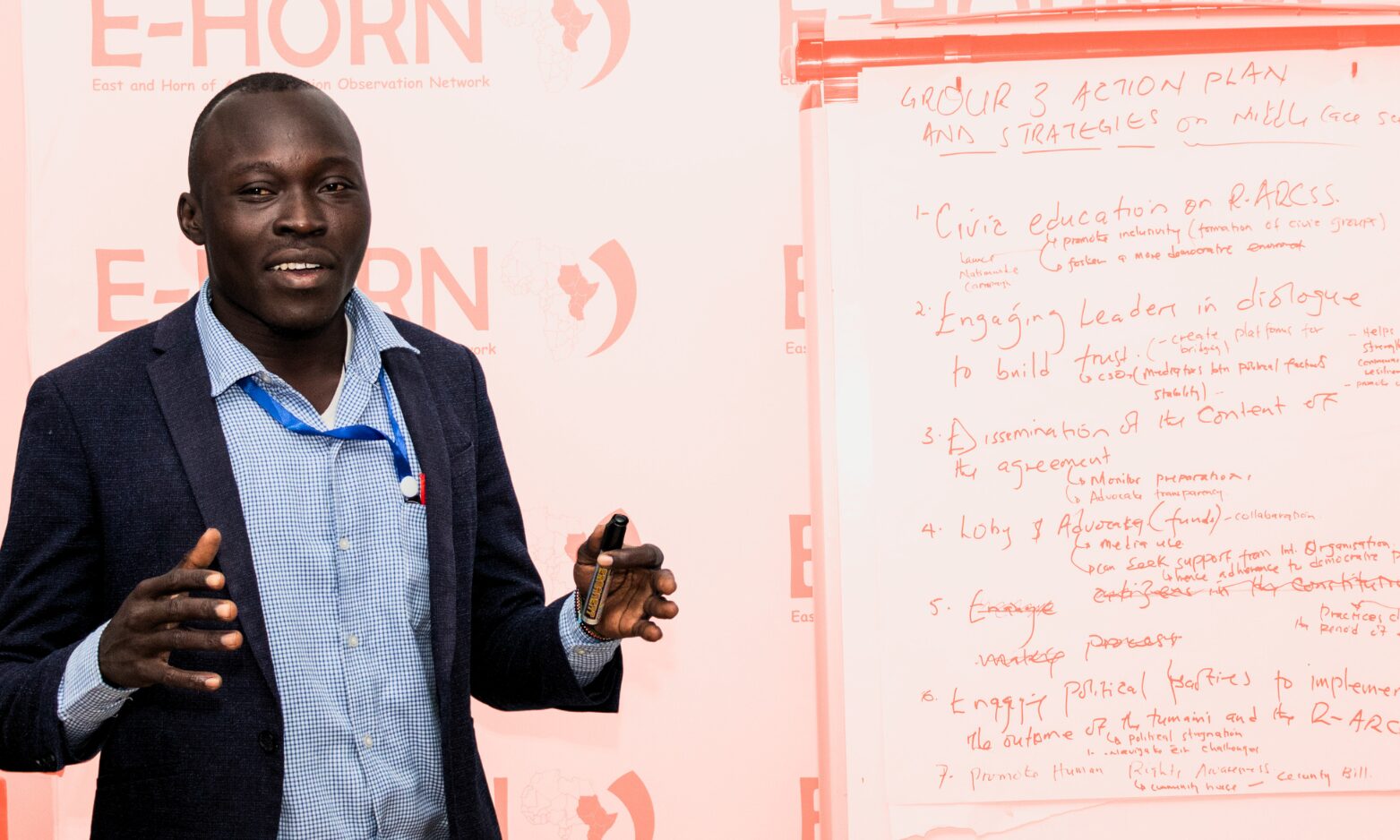On 13 September, President Salva Kiir postponed South Sudan’s 2024 elections, extending the transitional period to 22 December 2026, creating an urgent need for dialogue and action ahead of the country’s democratic transition.
On 15 September 2024, civil society leaders met in Juba for the South Sudan Country Forum organised by the East and Horn of Africa Election Observers Network and its member, the South Sudan Network for Democracy and Elections (SSuNDE), bringing together 32 participants from 11 organisations. The Forum followed an August webinar on the country’s election preparedness and provided a space to build momentum for reforms ahead of the 2026 elections. As Galdino Ochama, Executive Director of SSuNDE, emphasised, “We cannot treat 2026 like we did 2024. The Country Forum is our commitment to preparation, inclusion, and citizen-driven accountability.”
The Forum was opened by Edmund Yakani, CEPO Executive Director and EACSOF President, drawing from his paper “How Not to Hold Elections in South Sudan,” highlighted the risks of elections without reforms, civic participation, or adequate security, noting that repeated postponements since 2015 have fostered political limbo and undermined public trust.
At the Forum, participants split into three groups to explore Best, Worst, and Moderate case scenarios of the postponed elections, proposing strategic recommendations for civil society organisations (CSOs) in each case.
Best-case scenario
According to Edmund Yakani, Executive Director of the Community Empowerment for Progress Organization (CEPO), the extension of the transitional period could “provide a valuable opportunity for increased dialogue, better preparation, and more time to secure funding, ensuring a more transparent and inclusive election process.” Civil society should play a central role in this process, representing the aspirations of the South Sudanese people, emphasised Mulle Musau, E-HORN Regional Coordinator.
Worst-case scenario
The worst-case scenario following the election postponement to 2026 paints a picture of South Sudan spiraling into instability, marked by a stalled democratic transition, eroding trust in institutions, and the manipulation of ethnic divisions—risking a descent into civil war. Dr. Sarah Bireete, E-HORN Chairperson, warned, “What is it that the people want? For example, in this postponement, have the people been consulted? No. Nobody is talking to the people.” She added, “The citizens are not demanding enough for democracy. Democracy will not be supplied to the people of South Sudan without demand. It’s like any commodity in the market. The citizens must demand.”
Middle/Moderate-case scenario
In a middle-case scenario, South Sudan could face a political stalemate with slow but possible progress. Civil society organizations (CSOs) could drive civic education on the R-ARCSS, engage leaders in dialogue, and advocate for human rights legislation. As Dr. Sarah Bireete noted, “The people of South Sudan have been waiting for elections since 2015. These elections have been postponed four times. This keeps the country in a permanent election mode. It is not good for development. It is not good for the people.” CSOs could help break the deadlock and foster incremental progress toward peace and democracy.
Additional resources
Pictures on the South Sudan Country Forum








